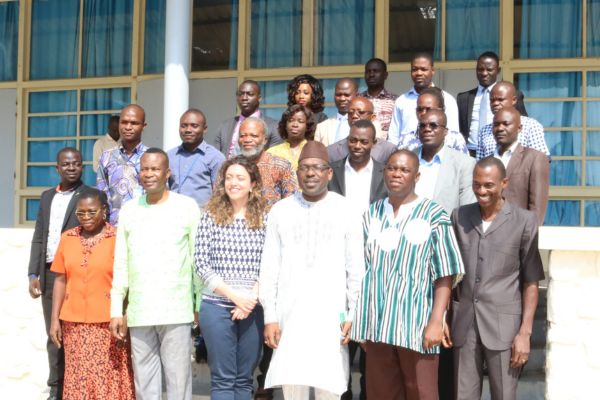
Capacity building on GBEP Sustainability Indicators for bioenergy in the ECOWAS countries: Togo and Ghana
FAO implemented a four-month project in Togo and Ghana in cooperation with the ECOWAS Centre for Renewable Energy and Energy Efficiency (ECREEE), which contributed to strengthen the capacity of the beneficiary countries to assess bioenergy sustainability via the GBEP sustainability indicators.
The project contributed to discussion on sustainability indicators for Forest Landscape Restoration (FLR) in the context of the AFR100 initiative in Sub Sahara African countries (SSA).
Objectives
The scope of the project was to sensitize policy makers and relevant stakeholders in the ECOWAS partner countries on the potential of bioenergy production and its use to better contribute to GHG emission reductions by replacing fossil fuel and traditional biomass use, while harnessing socio-economic co-benefits.
The activity aimed to build or enhance existing capacities of local experts to understand, assess and implement the GBEP sustainability indicators for bioenergy in Togo and Ghana, and use them to inform bioenergy policy decision making.
Activities
The projects centred around national workshops on bioenergy and trainings on the full implementation of the GBEP Sustainability Indicators for Bioenergy organized in Togo and Ghana, with a focus on the wood energy pathway both at household scale and at productive level. Activities were primarily based on the sharing of experience and lessons learnt from the full implementation of the GBEP sustainability indicators within the countries of other GBEP Partners. In particular, the project provided useful evidence to inform decision-making in the two beneficiary countries, within the broader context of low-carbon development, in relation to key bioenergy pathways, with a special focus on wood energy.
Long-term sustainability was also a key concern: strategies for sustainable development and climate change adaption were outlined, providing the basis for better planning and management of resources, including soil, water and land use. The activity guided the design of policies that promoted bioenergy pathways aligned with adaptation, fostering effective integrated policies for sustainable bioenergy as a part of low carbon, climate-resilient development strategies at the national and regional levels.
Target countries:
Togo and Ghana
Duration:
2018
Donor:
Deutsche Gesellschaft für Internationale Zusammenarbeit (GIZ)


